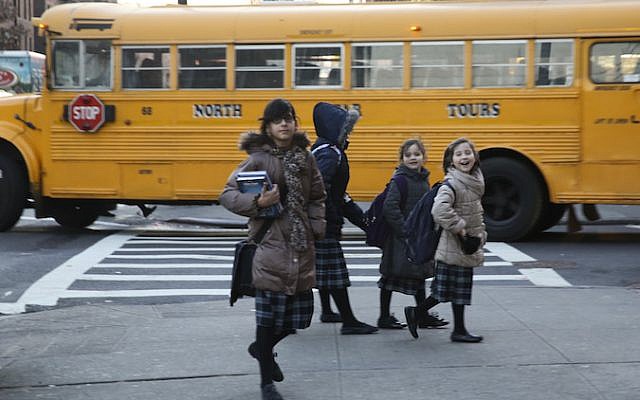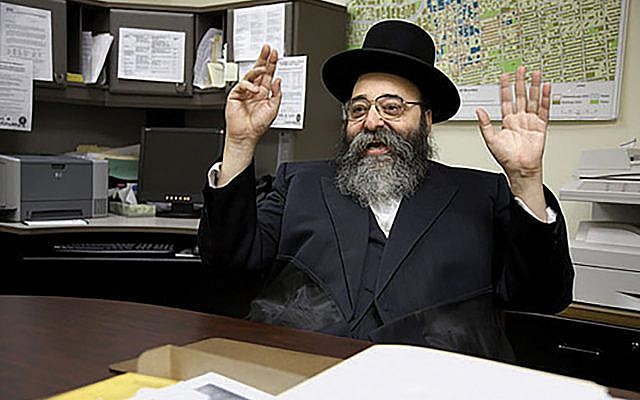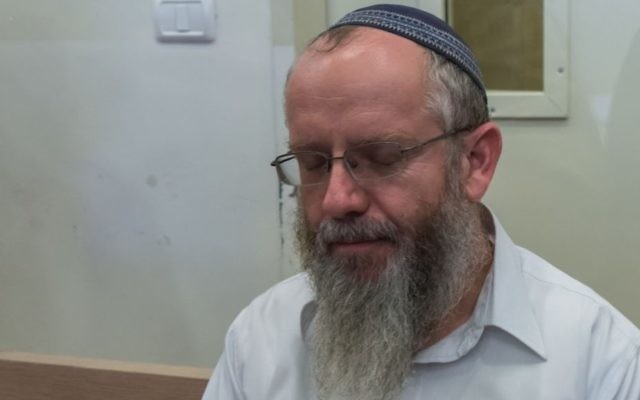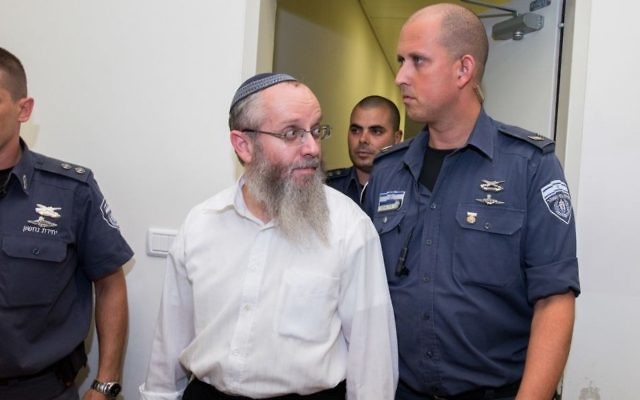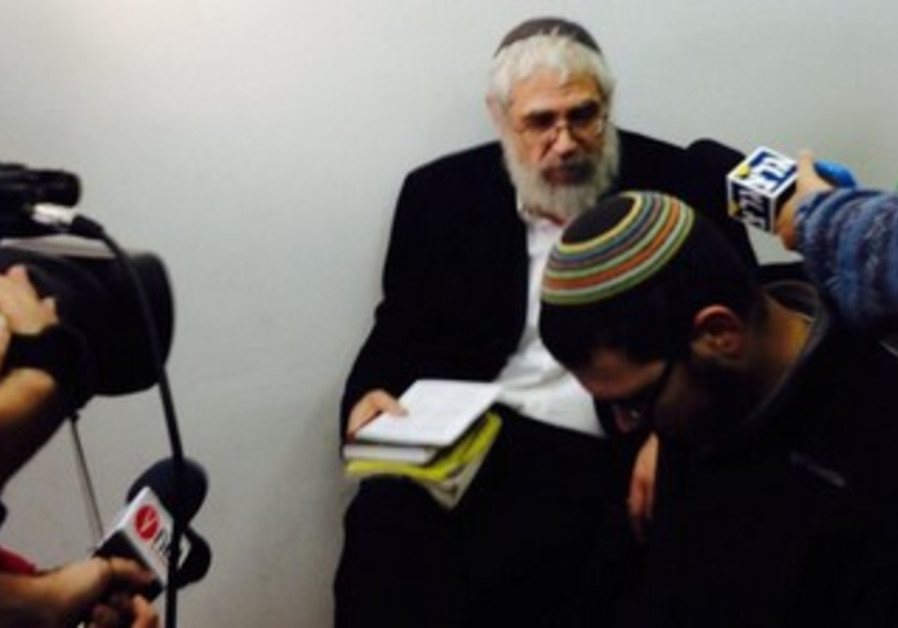Jay Fishman didn't speak English or know what fractions were before he was 15. Now, he studies computer science at Penn.

At age 14, Jay Fishman (E ‘21) didn’t even know fractions.
Last semester, the computer science major took MATH240, which is the
third course in Penn’s calculus sequence.
Jay grew up in an ultra–orthodox Hasidic community in Williamsburg, Brooklyn, which is known to be a “very traditional way of life.”
“Essentially they live in a lot of ways like their ancestors did in the 17th and 18th century,” Jay says. Hasidics believe that continuing in this way of life is “the only way to preserve their traditions and culture.”
Hasidic communities try to stay away from outside influences, like non–Jewish literature, TVs, sports, radios and movies. This often had cultural implications. “Even my friends now wouldn’t know who Justin Bieber is, or Lady Gaga, or LeBron James, or even others like Shakespeare and Mozart,” Jay said.
The schedule at Jay’s school was “exhausting.” In elementary and middle school, classes started at 7 a.m. and continued until about 4 p.m. The education (which Jay pointedly notes as being unreflective of most Jewish schools outside the Hasidic community) puts a very strong focus in religious studies and was mainly founded on important Jewish texts like the Torah.
Starting in the second or third grade, students would expand upon an already extensive religious education with an hour and a half of secular education. These classes only taught basic arithmetic and English, and never covered history or social sciences nor the natural and physical sciences.
“When I say English, even though we would learn English, the entire conversation would only be in Yiddish. The teachers are all members of the community, and they barely knew English themselves,” Jay said.
Jay learned the ABCs when he was in the third grade, and for a while was only able to use short phrases. “Even 6 years ago,” Jay says, “I wouldn't be able to write a full paragraph and definitely not have a full conversation.”
I interject, saying that his ability seemed like a tourist’s in a foreign country. “Exactly,” Jay responds. “But I wasn't a tourist: I was a third–generation living in New York City.”
When students enter their last year of middle school, secular education is completely dropped from the curriculum and students spend 13 hours solely studying religious texts. Jay adds, “There's no such thing as graduating or a high school diploma. Basically, you stay in school until you get married.” For most boys, this happened at age 18 or 19.
“It was a very different life overall—it's not really comparable,” Jay said, “Obviously it didn't work for me, otherwise I would still be there, but for some people it's all they know.”
He adds, “Growing up, the only people I would always hang out with were people that looked exactly like me: white Jewish boys with long curls and a black hat.” It’s a stark contrast to Jay’s outfit now, a faded red v–neck t–shirt and dark denim jeans.
Jay was first exposed to the potential of higher education through his father. Even though attending college was “forbidden,” Jay said, “My father started attending college when he was 30 years old. He had no high school diploma, didn't really know anything, but somehow he had this crazy idea that he wanted to go to college.”
Jay and his father talked about about science, literature, and cultures—all things Jay was never able to discuss in his Hasidic Yeshiva. “My mind was blown,” he said, “I knew that if I stayed in the community there was no way I would be able to learn all these things.”
He dropped out of his Yeshiva at age 15 and learned fractions with his grandmother, a math teacher for one of the community schools for girls. “She did not approve at all of what I did, but I guess she figured that it was better for me to learn something than to just be on the street and doing nothing. So she offered to teach me math,” Jay said. At the end of summer, he was able to take the algebra regents, a statewide examination that tests competency in specific subjects.
Later, Jay attended a Modern Orthodox Jewish school, which conducted religious studies for half the day and a more “rigorous” secular program in the afternoon. “For the first time in my life I had a science class, a history class...I started catching up,” Jay said. Jay then transferred to a public school. After three years, he graduated from New Explorations into Science, Technology and Math (NEST+m).
In order to give his community the same opportunities, Jay is working with Yaffed (Young Advocates for Fair Education) to improve secular education in Hasidic Yeshivas in order to improve job opportunities and decrease reliance on government assistance.
“In Williamsburg where I grew up, it's one of the highest Section 8 housing in the city,” Jay says, “It's really sad because these people are really smart and motivated—they spend like 13, 14 hours a day in school—they just never learned the basic skills they need for the future.”
“Since this community is so isolated, no one really knows about the problem,” he said, “One of the most important things is to raise awareness.” Jay has lobbied both city and state political officials, and even wrote an op–ed in The New York Jewish Week.
New York State law requires that all schools provide instruction that's “substantially equivalent” to public schools, and thus provide some sort of basic education. Jay says, “For all these years, politicians knew about the problem but just didn't feel the need to address it.”
Recently, Yaffed has gone to court to strike down the Felder Amendment, which allows weaker standards for schools like Hasidic Yeshivas when determining educational equivalency.
Jay is on the board of advisors at Yaffed. For Jay, this role requires understanding both sides of the issue. “You have to be someone that knows the sensitivities of the community and also knows the real world and why education is important,” Jay says.
Two years after dropping out of his yeshiva, Jay returned to his community to attend a reunion for his high school class, despite his feelings of apprehension. “Everyone was there in the black hats and the black coats and then I was in there on the right in t–shirt and jeans,” Jay said, “It was definitely awkward, but everyone was trying to be nice and friendly.” While Jay may have taken a different path from most of his peers, he is “definitely still proud of my identity and proud of my heritage.” He often goes to Hillel, and usually eats Shabbat meals.
It is because of this pride that Jay passionately fights for his community’s right to education. “I didn’t have an education growing up. I couldn't speak English, living in New York, and finally I’m at Penn studying computer science. Obviously I've had a lot of opportunities, and I truly believe that everyone else should have the same opportunities finally available to me.”
https://www.34st.com/article/2018/12/brooklyn-hasidic-community-penn-jay-fishman-secular-education-rights?fbclid=IwAR0JhbJEvL0GKKyQIbbxo0GKEm8t59DuR4x3F-SFbJWAXY_7_RAU4-ksNUA
FROM 2015:
Jay grew up in an ultra–orthodox Hasidic community in Williamsburg, Brooklyn, which is known to be a “very traditional way of life.”
“Essentially they live in a lot of ways like their ancestors did in the 17th and 18th century,” Jay says. Hasidics believe that continuing in this way of life is “the only way to preserve their traditions and culture.”
Hasidic communities try to stay away from outside influences, like non–Jewish literature, TVs, sports, radios and movies. This often had cultural implications. “Even my friends now wouldn’t know who Justin Bieber is, or Lady Gaga, or LeBron James, or even others like Shakespeare and Mozart,” Jay said.
The schedule at Jay’s school was “exhausting.” In elementary and middle school, classes started at 7 a.m. and continued until about 4 p.m. The education (which Jay pointedly notes as being unreflective of most Jewish schools outside the Hasidic community) puts a very strong focus in religious studies and was mainly founded on important Jewish texts like the Torah.
Starting in the second or third grade, students would expand upon an already extensive religious education with an hour and a half of secular education. These classes only taught basic arithmetic and English, and never covered history or social sciences nor the natural and physical sciences.
“When I say English, even though we would learn English, the entire conversation would only be in Yiddish. The teachers are all members of the community, and they barely knew English themselves,” Jay said.
Jay learned the ABCs when he was in the third grade, and for a while was only able to use short phrases. “Even 6 years ago,” Jay says, “I wouldn't be able to write a full paragraph and definitely not have a full conversation.”
I interject, saying that his ability seemed like a tourist’s in a foreign country. “Exactly,” Jay responds. “But I wasn't a tourist: I was a third–generation living in New York City.”
When students enter their last year of middle school, secular education is completely dropped from the curriculum and students spend 13 hours solely studying religious texts. Jay adds, “There's no such thing as graduating or a high school diploma. Basically, you stay in school until you get married.” For most boys, this happened at age 18 or 19.
“It was a very different life overall—it's not really comparable,” Jay said, “Obviously it didn't work for me, otherwise I would still be there, but for some people it's all they know.”
He adds, “Growing up, the only people I would always hang out with were people that looked exactly like me: white Jewish boys with long curls and a black hat.” It’s a stark contrast to Jay’s outfit now, a faded red v–neck t–shirt and dark denim jeans.
Jay was first exposed to the potential of higher education through his father. Even though attending college was “forbidden,” Jay said, “My father started attending college when he was 30 years old. He had no high school diploma, didn't really know anything, but somehow he had this crazy idea that he wanted to go to college.”
Jay and his father talked about about science, literature, and cultures—all things Jay was never able to discuss in his Hasidic Yeshiva. “My mind was blown,” he said, “I knew that if I stayed in the community there was no way I would be able to learn all these things.”
He dropped out of his Yeshiva at age 15 and learned fractions with his grandmother, a math teacher for one of the community schools for girls. “She did not approve at all of what I did, but I guess she figured that it was better for me to learn something than to just be on the street and doing nothing. So she offered to teach me math,” Jay said. At the end of summer, he was able to take the algebra regents, a statewide examination that tests competency in specific subjects.
Later, Jay attended a Modern Orthodox Jewish school, which conducted religious studies for half the day and a more “rigorous” secular program in the afternoon. “For the first time in my life I had a science class, a history class...I started catching up,” Jay said. Jay then transferred to a public school. After three years, he graduated from New Explorations into Science, Technology and Math (NEST+m).
In order to give his community the same opportunities, Jay is working with Yaffed (Young Advocates for Fair Education) to improve secular education in Hasidic Yeshivas in order to improve job opportunities and decrease reliance on government assistance.
“In Williamsburg where I grew up, it's one of the highest Section 8 housing in the city,” Jay says, “It's really sad because these people are really smart and motivated—they spend like 13, 14 hours a day in school—they just never learned the basic skills they need for the future.”
“Since this community is so isolated, no one really knows about the problem,” he said, “One of the most important things is to raise awareness.” Jay has lobbied both city and state political officials, and even wrote an op–ed in The New York Jewish Week.
New York State law requires that all schools provide instruction that's “substantially equivalent” to public schools, and thus provide some sort of basic education. Jay says, “For all these years, politicians knew about the problem but just didn't feel the need to address it.”
Recently, Yaffed has gone to court to strike down the Felder Amendment, which allows weaker standards for schools like Hasidic Yeshivas when determining educational equivalency.
Jay is on the board of advisors at Yaffed. For Jay, this role requires understanding both sides of the issue. “You have to be someone that knows the sensitivities of the community and also knows the real world and why education is important,” Jay says.
Two years after dropping out of his yeshiva, Jay returned to his community to attend a reunion for his high school class, despite his feelings of apprehension. “Everyone was there in the black hats and the black coats and then I was in there on the right in t–shirt and jeans,” Jay said, “It was definitely awkward, but everyone was trying to be nice and friendly.” While Jay may have taken a different path from most of his peers, he is “definitely still proud of my identity and proud of my heritage.” He often goes to Hillel, and usually eats Shabbat meals.
It is because of this pride that Jay passionately fights for his community’s right to education. “I didn’t have an education growing up. I couldn't speak English, living in New York, and finally I’m at Penn studying computer science. Obviously I've had a lot of opportunities, and I truly believe that everyone else should have the same opportunities finally available to me.”
https://www.34st.com/article/2018/12/brooklyn-hasidic-community-penn-jay-fishman-secular-education-rights?fbclid=IwAR0JhbJEvL0GKKyQIbbxo0GKEm8t59DuR4x3F-SFbJWAXY_7_RAU4-ksNUA
FROM 2015:











